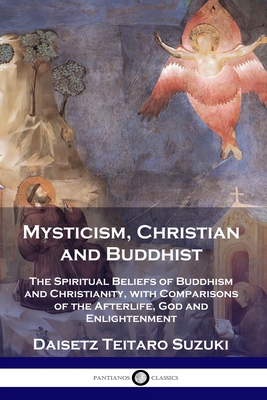
Suzuki, Deisetz Teitaro
The author was struck by the spiritual thinking of Meister Eckhart, a theologian who lived in 13th century Germany. Seeing how Eckhart contemplated his religion, and the similarities his writings carried to those of Mahayana Buddhism, encouraged Suzuki to investigate further. What followed, over a number of years, were the essays that comprise this book - a compelling sequence of comparisons between thinkers of the Christian and Buddhist traditions.
Suzuki focuses upon the comparison between the path of the Christian to spiritual affinity with God, and the Buddhist path to enlightenment, via meditation and mindfulness. In Eckhart's writings he finds much in common: for example, the Buddhist principle of emptiness, whereby the soul is detached from the corporeal realm and in closer affinity to the divine, is comparison to what Eckhart termed "abegescheidenheit"; a detachment from worldly affairs.
In discussing parallels between the two religions, Suzuki is salient and lucid. The later chapters examine verses relevant to the themes already expounded upon, namely the treatment of the human soul and the changes it must undertake on a spiritual path.







